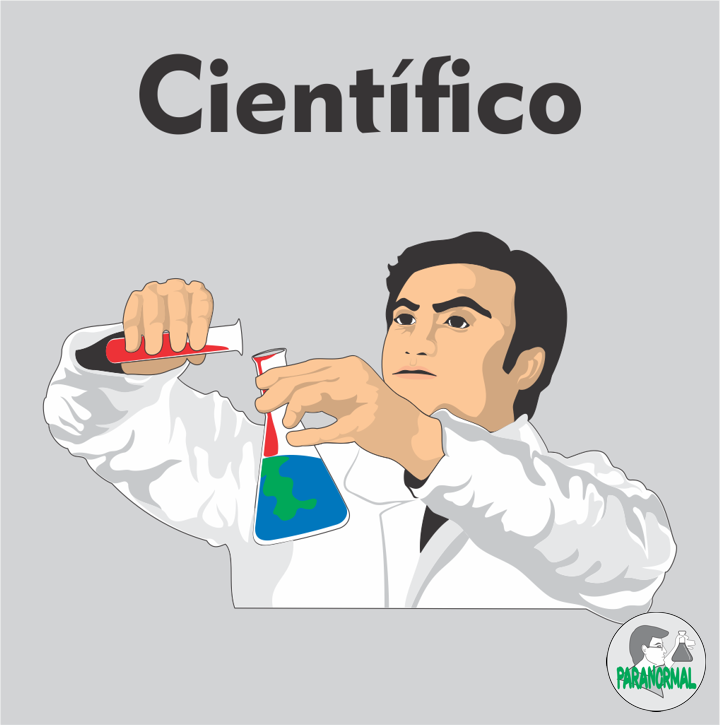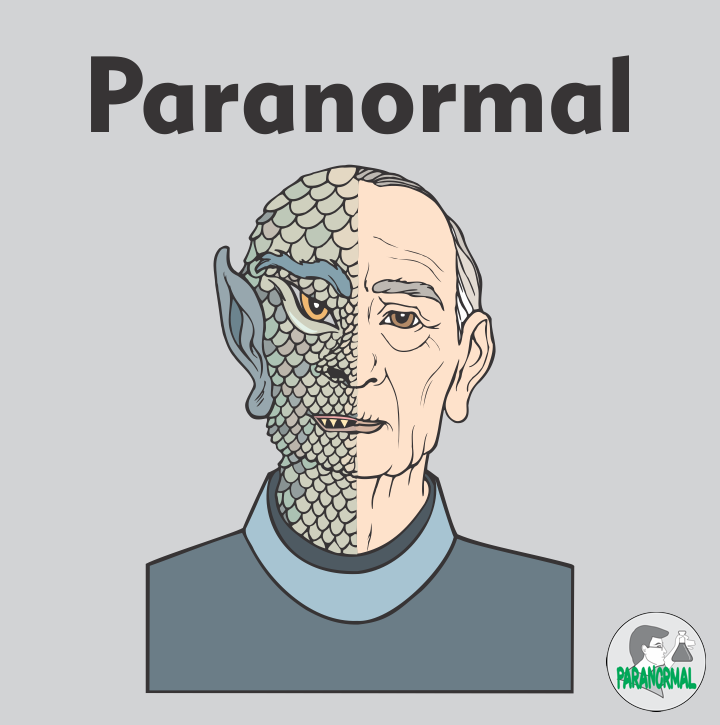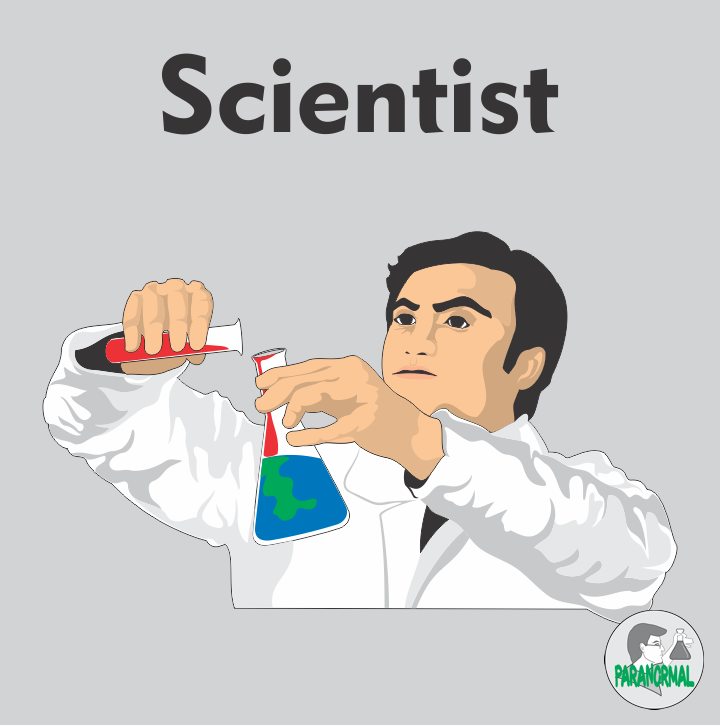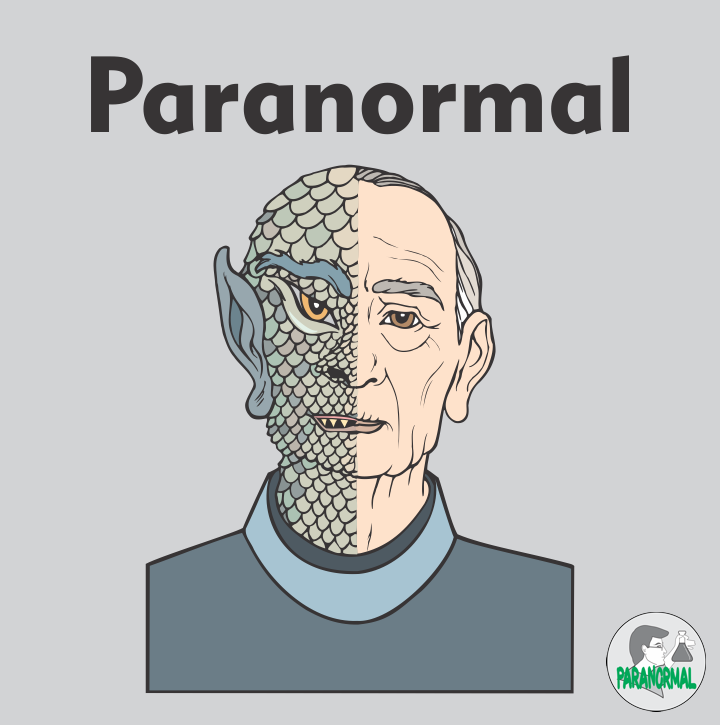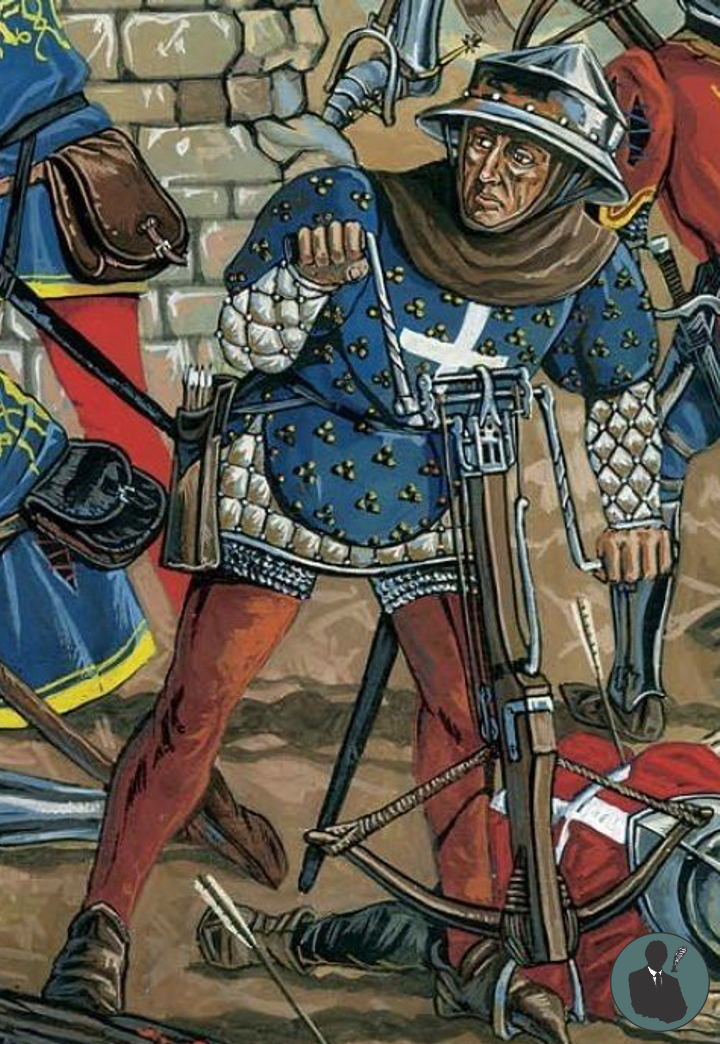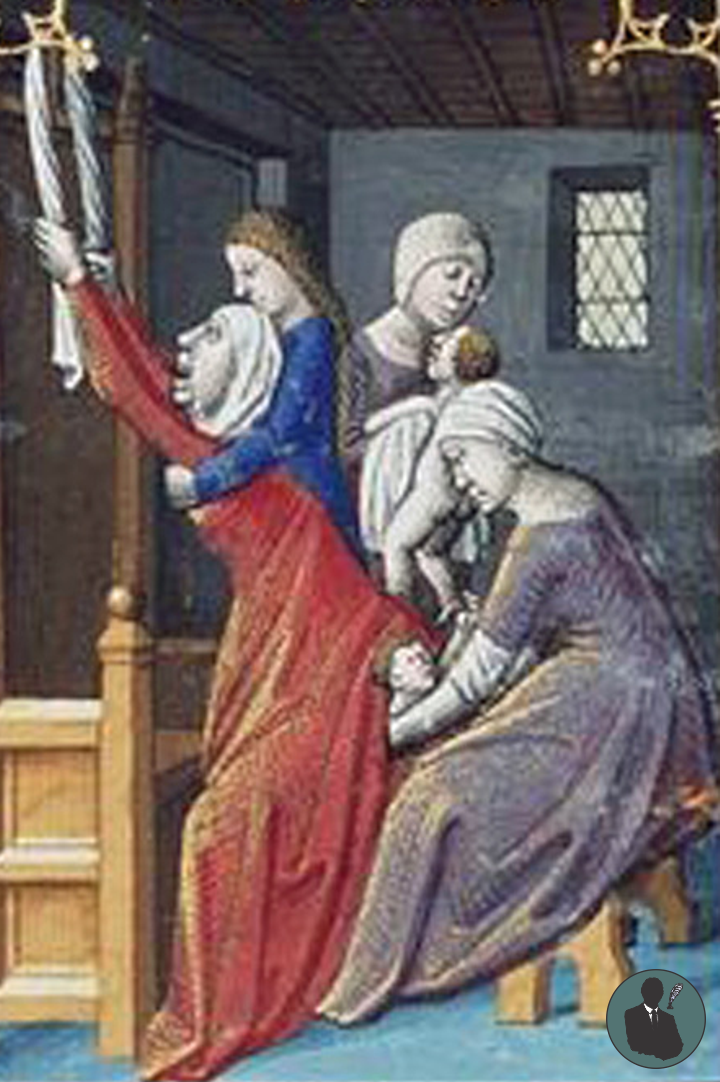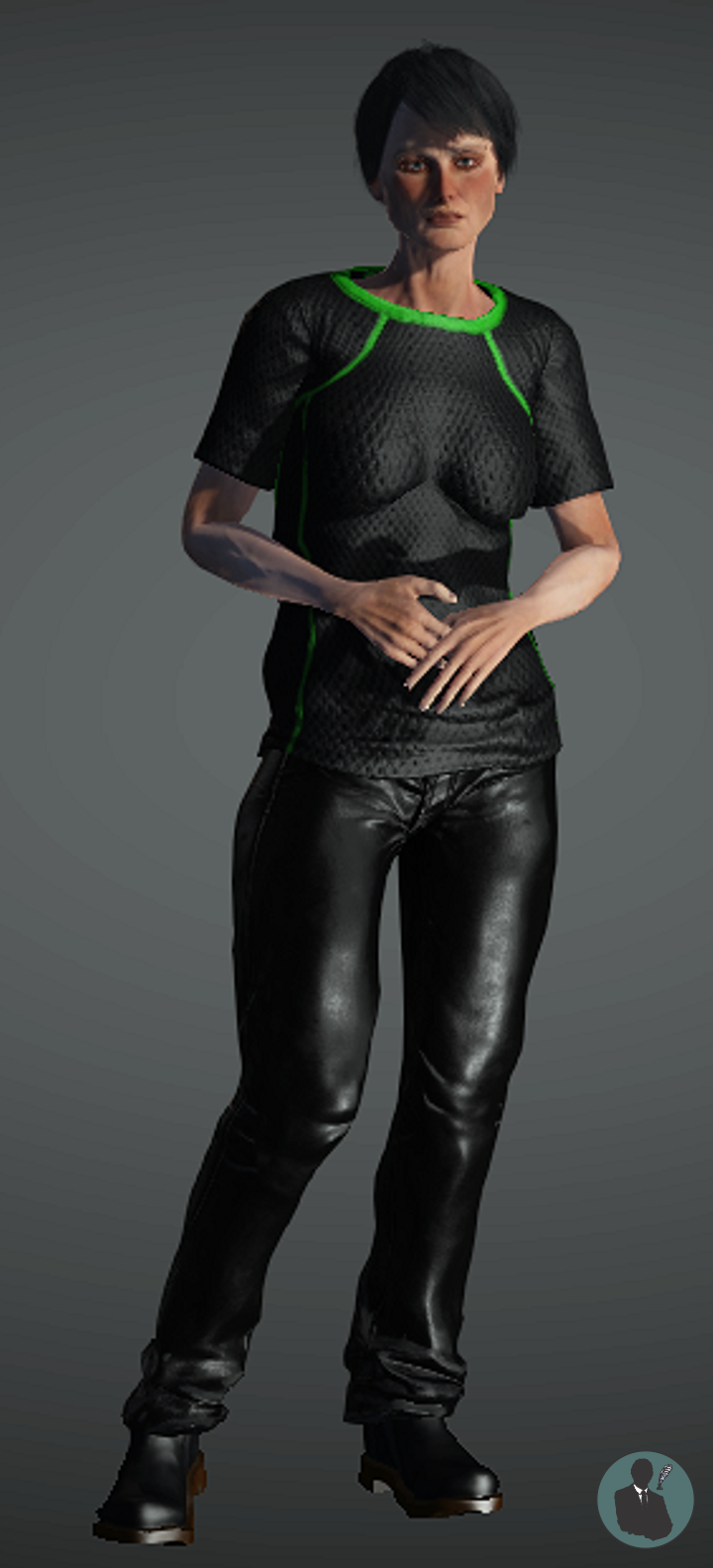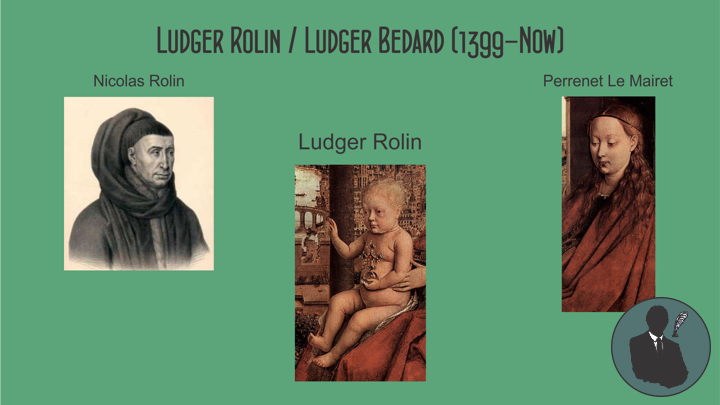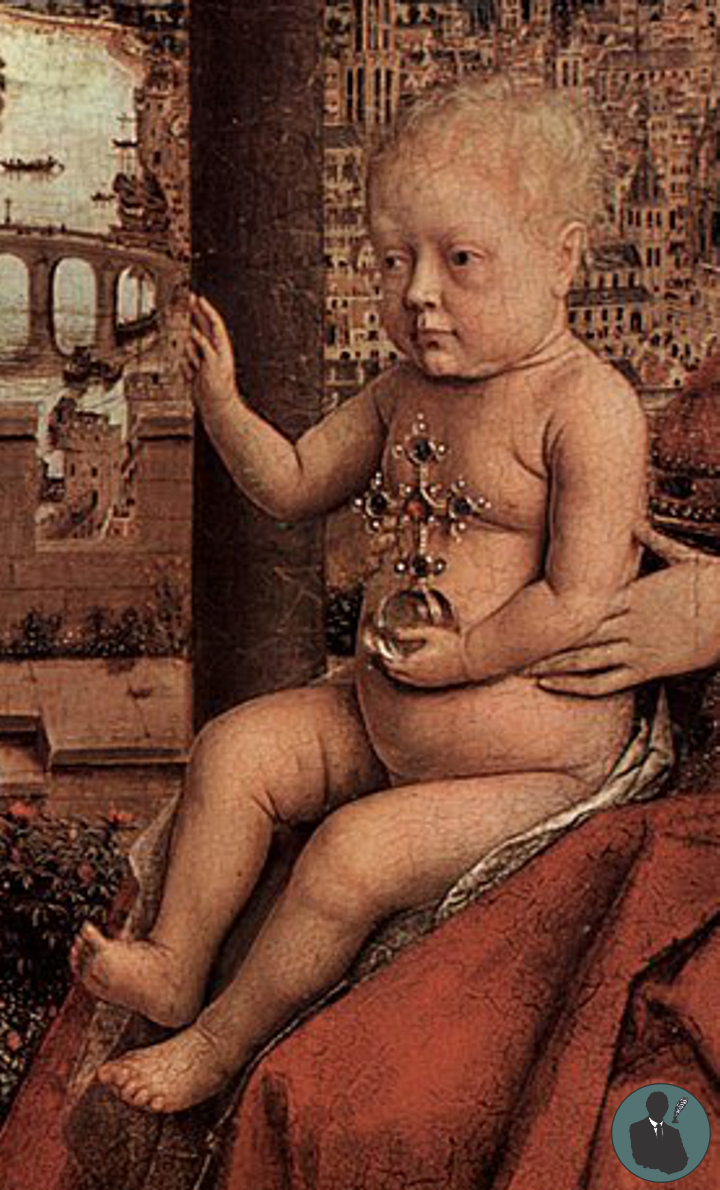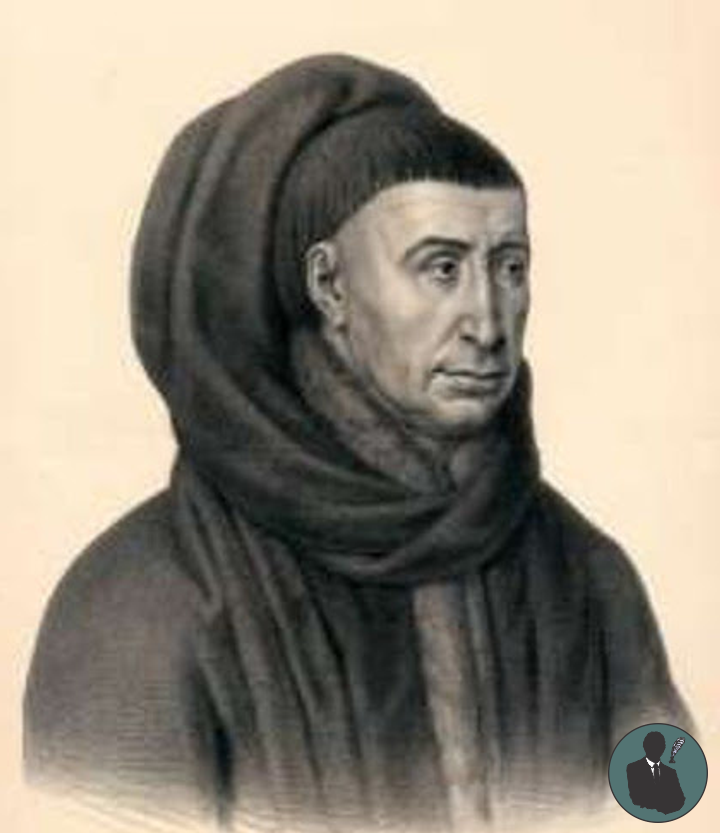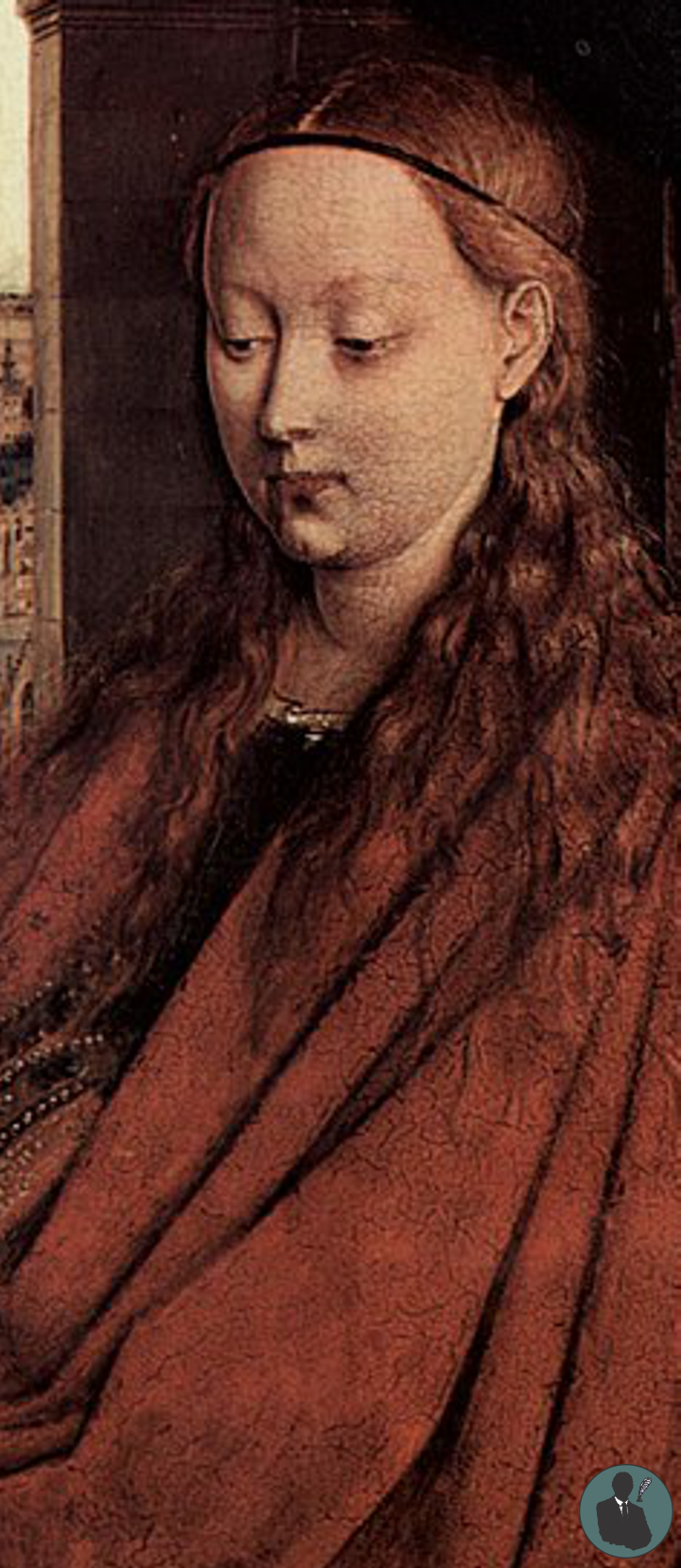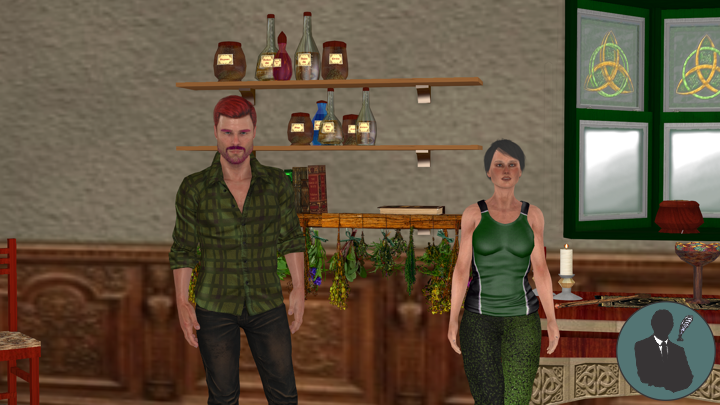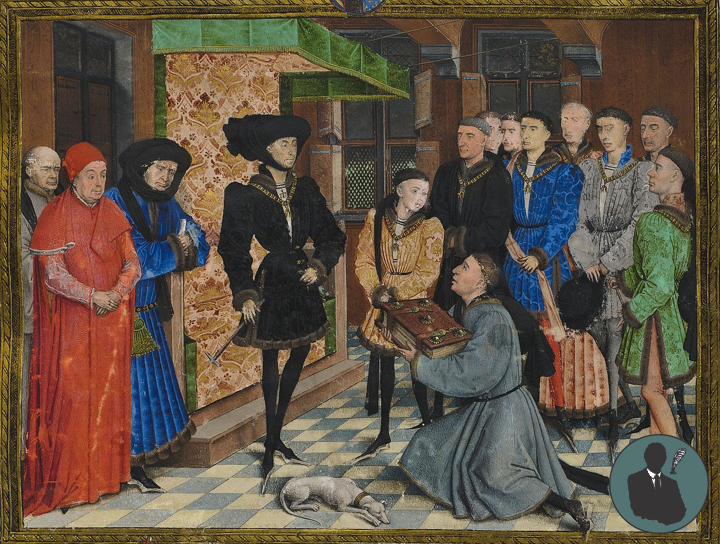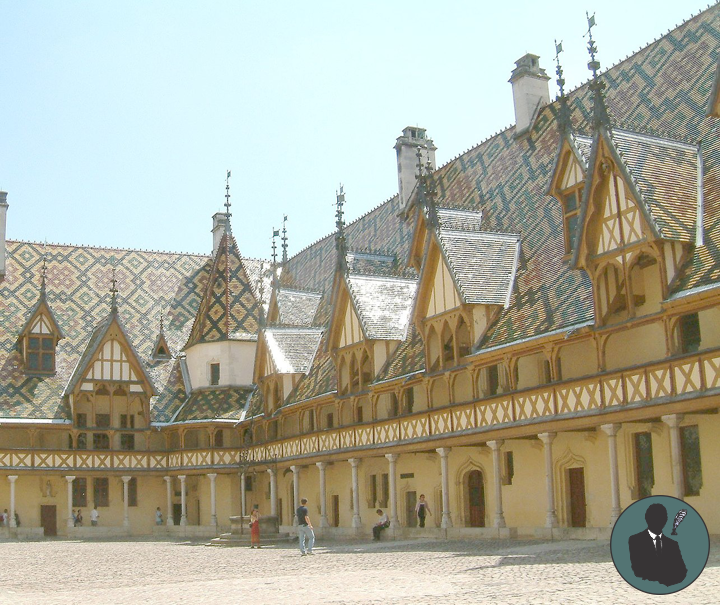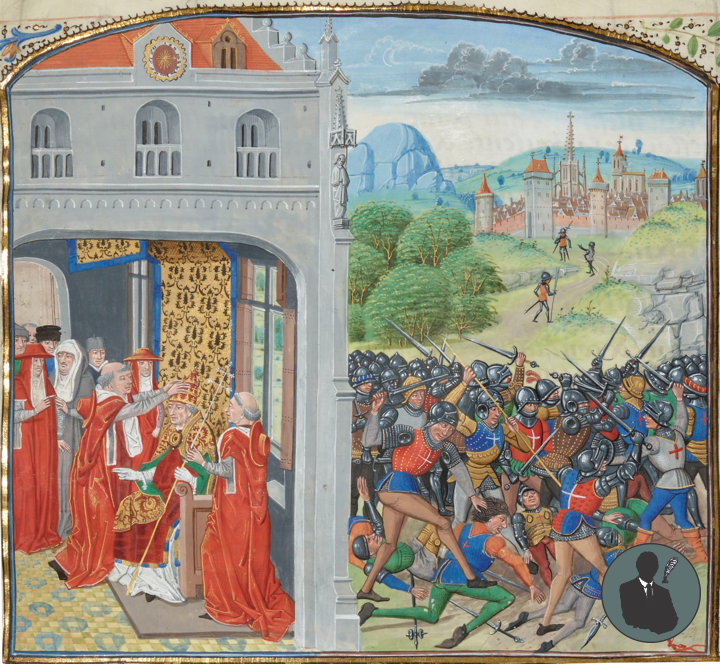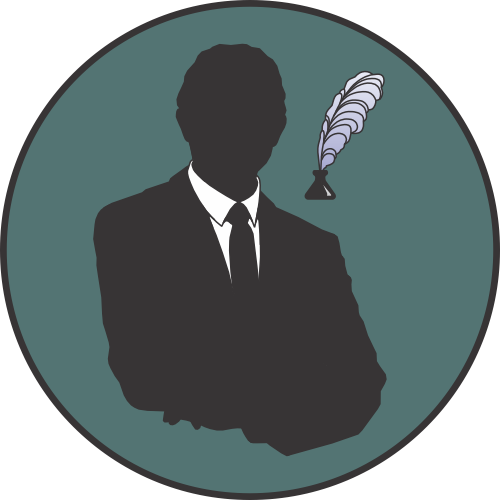——
#Paranormal #DrScientist #PercepciónExtrasensorial #Espiritualismo #Criptozaología #Telekinesis #Poltergeists #Fantasmas #OVNI #Extraterrestre
——
——
——
Científico
Un científico es una persona que lleva a cabo investigaciones científicas para avanzar en un área de interés. En los tiempos modernos, muchos científicos profesionales están capacitados en universidades académicas, principalmente a nivel de escuelas de posgrado. Al finalizar, normalmente alcanzarían un grado académico, con el mayor grado de un doctorado. Los científicos incluyen experimentos que realizan principalmente experimentos para probar las hipótesis.
Un experimento es un procedimiento realizado para apoyar o refutar una hipótesis. Los experimentos proporcionan información sobre la causa y el efecto demostrando qué ocurre el resultado cuando se manipula un factor particular. Los experimentos varían mucho en la meta y la escala, pero siempre confían en el procedimiento repetible y el análisis lógico de los resultados.
Luego se probó la hipótesis utilizando el principio de falsificación para probar o refutar su precisión. Las ciencias naturales continuaron siendo llamadas filosofía natural, pero la adopción del método científico tomó la ciencia más allá del ámbito de la conjetura filosófica e introdujo una forma más estructurada de examinar la naturaleza.
Paranormal
Los eventos paranormales son fenómenos supuestos descritos en la cultura popular, la gente y otros organismos científicos del conocimiento, cuya existencia dentro de estos contextos se describe más allá del alcance de la comprensión científica normal. Las creencias paranormales notables incluyen aquellas que pertenecen a la percepción extrasensorial, el espiritualismo, la caza de fantasmas, la criptozaología y la ufología. Por lo tanto, los fenómenos paranormales incluyen la percepción extrasensorial (ESP), la telekinesis, los fantasmas, los poltergeists, la vida después de la muerte, la reencarnación, la curación de la fe, las auras humanas, etc.
Dr. Scientist / Paranormal
Los científicos aceptan una serie de principios básicos como estándares para determinar si un organismo de conocimiento, método o práctica es científico. Los resultados experimentales deben ser reproducibles y verificados por otros investigadores. Las declaraciones, las hipótesis o las teorías tienen refutabilidad si existe la posibilidad inherente de que puedan ser probados falsos. Es decir, si es posible concebir una observación o un argumento que los niegue.
Dr. Scientist
——
#Paranormal #DrScientist #ExtrasensoryPerception #Spiritualism #Cryptozoology #Telekinesis #Poltergeists #Ghost #UFO #Alien
——
——
——
Scientist
A scientist is a person who conducts scientific research to advance knowledge in an area of interest. In modern times, many professional scientists are trained in an academic universities, mostly at the level of graduate schools. Upon completion, they would normally attain an academic degree, with the highest degree being a doctorate. Scientists include experimentalists who mainly perform experiments to test hypotheses.
An experiment is a procedure carried out to support or refute a hypothesis. Experiments provide insight into cause-and-effect by demonstrating what outcome occurs when a particular factor is manipulated. Experiments vary greatly in goal and scale, but always rely on repeatable procedure and logical analysis of the results.
The hypothesis was then tested using the principle of falsifiability to prove or disprove its accuracy. The natural sciences continued to be called natural philosophy, but the adoption of the scientific method took science beyond the realm of philosophical conjecture and introduced a more structured way of examining nature.
Paranormal
Paranormal events are purported phenomena described in popular culture, folk, and other scientific bodies of knowledge, whose existence within these contexts is described as beyond the scope of normal scientific understanding. Notable paranormal beliefs include those that pertain to extrasensory perception, spiritualism, the ghost hunting, cryptozoology, and ufology. Thus, paranormal phenomena include extrasensory perception (ESP), telekinesis, ghosts, poltergeists, life after death, reincarnation, faith healing, human auras, and so forth.
Dr. Scientist / Paranormal
A number of basic principles are accepted by scientists as standards for determining whether a body of knowledge, method, or practice is scientific. Experimental results should be reproducible and verified by other researchers. Statements, hypotheses, or theories have refutability if there is the inherent possibility that they can be proven false. That is, if it is possible to conceive of an observation or an argument which negates them.
Dr. Scientist
——
#LudgerBedardConsultingPrivateDetective #LudgerBedard #AnneMarieBedard #Detective #Adventurer #Occult #Paranormal #Magic #Alchemy #3DAnimation
——
Abraham Bedard
——
Guillemette Le Clerc
——
Anne-Marie Bedard
——
Anne-Marie Bedard as born in 1357 in Beaune, Burgundy, France. The daughter of Abraham Bedard and Guillemette Le Clerc, she was the thirteen of their thirteen children. Father Abraham Bedard is French soldiers. Guillemette Le Clerc changing views of medicine caused the women’s role as midwife to be pushed aside as the professionalization of medical practitioners began to go up.
Monks and monasteries of the Roman Catholic Church have had an important influence on the history of Burgundy wine. While single women both lived without a spouse at some point in their lives, their lifestyles were very different and widows were often awarded more freedoms and opportunities. If a woman living did not marry in her teens, she was often expected to join a nunnery.
Le Tart Abbey, was the nunnery of the Cistercian. It was located of Tart-l’Abbaye in Burgundy the Cistercian mother house. Thanks to its support from the upper echelons of society, if not to more popular appeal, the abbey received sufficient endowments to ensure its financial stability through the difficult times to come. Its lands included several vineyards, and the sale of wine was a significant element in the abbey’s economy: five hectares of the Vignoble de Bourgogne, others located at Beaune, Chambolle-Musigny, Morey-Saint-Denis, Chézeaux and Vosne-Romanée.
Abbesses Cistercian are major superiors according to canon law, the equivalents of abbots or bishops. They receive the vows of the nuns of the abbey; they may admit candidates to their order’s novitiate; they may send them to study; and they may send them to do pastoral or missionary, or to work or assist—to the extent allowed by canon and civil law—in the administration and ministry of a parish or diocese. They have full authority in its administration. They may not administer the sacraments, whose celebration is reserved to bishops, priests, namely, those in Holy Orders.
Abbesses Cistercian, Anne-Marie Bedard apprenticeships within these trades were difficult to acquire and were not given formal representation in official records. If a woman was lucky enough to acquire such an opportunity to advance professionally within the trade. The economic difficulties that guilds imposed on unmarried women led many to enter the retail industry.
Anne-Marie Bedard is an important figure in the early history of French cuisine. She was cook to the Nicolas Rolin. His first position was enfant de cuisine to Abbesses Cistercian. From 1372 she was queux, head chef. In 1382 she became squire to the Nicolas Rolin. He is generally considered one of the first truly “professional” master chefs.
She expanded a collection of recipes as Anne-Marie Bedard, a famous book on cookery and cookery technique, thought to be one of the first professional treatises written in France and upon which the French gastronomic tradition was founded. It had an inestimable influence on subsequent books on French cuisine and is important to food historians as a detailed source on the medieval cuisine of northern France.
Anne-Marie Bedard
——
#LudgerBedardConsultingPrivateDetective #LudgerBedard #AnneMarieBedard #LudgerRolin #NicolasRolin #PerrenetLeMairet #Detective #Adventurer #Occult #Paranormal #Magic #Alchemy #3DAnimation
——
Ludger Rolin / Ludger Bedard (1399-Now)
——
Ludger Rolin
——
Nicolas Rolin
——
Perrenet Le Mairet
——
Ludger Bedard and Mom Anne-Marie Bedard
——
Nicolas Rolin also inherited his family’s home in Autun on the Rue de Bancs, which, throughout his long life, remained his primary residence. Anne-Marie Bedard a chef de cuisine is a chef that leads and manages the kitchen and chefs of a Nicolas Rolin. The chef de cuisine is in charge of all activities related to the kitchen, which usually includes creating menus, managing kitchen staff, ordering and purchasing stock and equipment, plating design, enforces nutrition, safety, and sanitation, and ensuring the quality of the meals that are served.
Ludger Rolin as born in 1399 in Autun, Burgundy, France. Ludger, “Enfant Terrible” is a French expression, traditionally referring to a child who is terrifyingly candid by saying embarrassing things to parents or others. Nicolas Rolin and Ludger Rolin to represent the interests of children in cases where the child’s wishes differ from those of either parent. Important burgher of Autun, after practice as lawyer in the Parliament of Paris.
However, the expression has drawn multiple usage in careers of science, art, fashion, music, and other creative arts. In these careers, it implies a successful “genius” who is very unorthodox, striking, and in some cases, offensive, rebellious, usually young and successful person who is strikingly unorthodox, innovative, or avant-garde.
Anne-Marie and child Ludger Bedard a legal guardian in 1401 a person who has the legal authority, and the corresponding duty, to care for the personal and property interests of another person, called a ward. The term in “loco parentis” refers to the legal responsibility of a person to take on some of the functions and responsibilities of a parent. Anne-Marie and child Ludger Bedard here is Paris.
An avid reader from before the time he started formally in school, he has had a lifelong interest in learning. He has always said:
“If you go to bed at night without learning something new that day, your day is not complete.”
Ludger Bedard (1411)
The quintessential “Renaissance Man”, Ludger has always had deep passions for a wide variety of interest for as long as he can remember. He is self-learned on a wide variety of topics, and has developed a series of learning and creative techniques to assist him.
Polymath
A polymath is an individual whose knowledge spans a substantial number of subjects, known to draw on complex bodies of knowledge to solve specific problems. Embodying a basic tenet of Renaissance humanism that humans are limitless in their capacity for development, the concept led to the notion that people should embrace all knowledge and develop their capacities as fully as possible. This is expressed in the term Renaissance man, often applied to the gifted people of that age who sought to develop their abilities in all areas of accomplishment: intellectual, artistic, social, physical, and spiritual.
To have encyclopedic knowledge is to have “vast and complete” knowledge about a large number of diverse subjects. A person having such knowledge is called a human encyclopedia or a walking encyclopedia. The concept of encyclopedic knowledge was once attributed to exceptionally well-read or knowledgeable persons such as Plato, Aristotle, Hildegard von Bingen, Leonardo da Vinci, Immanuel Kant, or G. W. F. Hegel. Tom Rockmore described Hegel, for example, as a polymath and “a modern Aristotle, perhaps the last person to know everything of value that was known during his lifetime.” Such persons are generally described as such based on their deep cognitive grasp of multiple and diverse fields of inquiry—an intellectually exceptional subset of philosophers who might also be differentiated from the multi-talented, the genius, or the “Renaissance man.”
Ludger Bedard Detective
——
#LudgerBedardConsultingPrivateDetective #LudgerBedard #NicolasRolin #HospicesDeBeaune #HundredYearsWar #Detective #Adventurer #Occult #Paranormal #Magic #Alchemy #3DAnimation
——
Nicolas Rolin
The Virgin with Chancellor Rolin
——
Nicolas Rolin
Philip the Good of Burgundy and Courtiers, with Rolin at his right hand.
——
Nicolas Rolin
Hospices de Beaune
——
Nicolas Rolin (1376–1462) was a leading figure in the history of Burgundy and France, becoming chancellor to Philip the Good (Philip III, Duke of Burgundy).
Of bourgeois origins, Rolin was born in Autun in 1376 and baptized in the family church of Notre-Dame du Châtel across the street from his home. Nicolas’s granduncle managed to parlay a small inheritance and some good luck into significant landholdings and his grandfather was a prominent, if not particularly wealthy Autunois. Nicolas’s father was a successful landholder who transformed his financial windfall into good marriages for his sons.
The rents and other income accrued from his properties, most of which were related to viniculture, were substantial enough that he had become fairly prominent by the time of his death in 1389, when he was buried in the Cathedral of Saint Lazare in Autun. Coming into a significant inheritance in his teens, Rolin pursued his studies of law in Avignon as a wealthy young man. He inherited lands in such famous wine-producing areas as Mersault, Auxey, Volnay, Beaune, and Pommard, and his landholdings became even larger following the death of his brother, Jean.
Rolin’s first marriage in 1398 was part of a triple marriage of his widowed mother to a bourgeois of Beaune, accompanied by the marriages of her two sons to two daughters of the bridegroom, Perrenet Le Mairet. However all three of these brides were dead within a few years.
Rolin spent the majority of his life working for the Valois dukes of Burgundy, and while he was wealthier than many of those with titles around him, he was not noble. That at a court where the roturier, whatever his office or wealth, was always second-best to the noble born-and-bred, lesser social origins were an embarrassment which one did not seek to expose or explain at length. Chastelain, a prime example of this himself, reflects the values of the milieu that had adopted him in his aloof treatment of those who climbed the social ladder. Chastelain was a member of the minor nobility with limited financial resources and his position at court may account, at least in part, for his unflattering description of Rolin.
Rolin began his career as a lawyer in the Paris parliament and was quickly made chief legal council for John the Fearless in 1408. He served as a chief legal advisor and as an ambassador for the duke until John’s brutal murder in Montereau in 1419. John’s son, Philip the Good, named Rolin chancellor of Burgundy on December 3, 1422, and with this new title Rolin continued his ascent, soon becoming one of the most important diplomats on the European political stage. Rolin was charged with interpreting, negotiating and enforcing the legal rights and regulations of the duchy as well as oversight of all accounting. He served as keeper of the duke’s seal and was involved in most domestic and foreign affairs of state. Performing this service during the years in which Burgundy’s relations with France and England were particularly strained, Rolin acted as a trusted counselor to Philip the Good, helping him navigate his way through treacherous political waters. Rolin’s third marriage, to Guigone de Salins, was also his most upwardly mobile since the bride was a member of the high nobility. In 1423 or 1424, Philip the Good knighted Rolin, and Guigone was made a member of the duchess’s court.
Hospices de Beaune
The Hospices de Beaune or Hôtel-Dieu de Beaune is a former charitable almshouse in Beaune, France. It was founded in 1443 by Nicolas Rolin, chancellor of Burgundy, as a hospital for the poor. The original hospital building, the Hôtel-Dieu, one of the finest examples of fifteenth-century Burgundian architecture.
The Hôtel-Dieu was founded on 4 August 1443, when Burgundy was ruled by Duke Philip the Good. The Hundred Years’ War had recently been brought to a close by the signing of the Treaty of Arras in 1435. Massacres, however, continued with marauding bands till roaming the countryside, pillaging and destroying, provoking misery and famine. The majority of the people of Beaune were destitute, and the area had recently suffered an outbreak of plague. Nicolas Rolin, the Duke’s Chancellor, and his wife Guigone de Salins, responded by building a hospital and refuge for the poor. Having gained permission from Pope Eugene IV in 1441, the hospice was built and consecrated on 31 December 1452. In conjunction, Rolin established the “Les sœurs hospitalières de Beaune” religious order.
Ludger Bedard
——
#LudgerBedardConsultingPrivateDetective #LudgerBedard #HundredYearsWar #Detective #Adventurer #Occult #Paranormal #Magic #Alchemy #3DAnimation
——
——
——
——
Hundred Years’ War (1337–1360)
The Battle of Crécy
Hundred Years’ War (1369–1389)
The Battle of Pontvallain
Hundred Years’ War (1415–1453)
The Siege of Orléans
Hundred Years’ War
The Hundred Years’ War was a series of conflicts between the kingdoms of England and France during the Late Middle Ages. It originated from disputed claims to the French throne between the English royal House of Plantagenet and the French royal House of Valois.
The Hundred Years’ War could be considered a lengthy war of succession between the houses of Valois and Plantagenet. The early reign of Philip VI was a promising one for France. The new king fought the Flemings on behalf of his vassal, the count of Flanders, and restored that count to power. Edward III’s aggression against Scotland, a French ally, prompted Philip VI to confiscate Guyenne. In the past the English kings would have to submit to the King of France. But Edward, having descended from the French kings, claimed the throne for himself. France was then at the height of its power. No one believed that the English king could make good his claim to France.
The was a series of conflicts in Western Europe from 1337 to 1453, waged between the House of Plantagenet and its cadet House of Lancaster, rulers of the Kingdom of England, and the House of Valois over the right to rule the Kingdom of France. It was one of the most notable conflicts of the Middle Ages, in which five generations of kings from two rival dynasties fought for the throne of the largest kingdom in Western Europe. The war marked both the height of chivalry and its subsequent decline, and the development of stronger national identities in both countries.
Later historians adopted the term “Hundred Years’ War” as a historiographical periodisation to encompass these conflicts, constructing the longest military conflict in European history. It is common to divide the war into three phases, separated by truces: the Edwardian War (1337–1360), the Caroline War (1369–1389), and the Lancastrian War (1415–1453). Although each side drew many allies into the war, in the end, the House of Valois retained the French throne and the English and French monarchies remained separate.
Ludger Bedard
——
#LudgerBedardConsultingPrivateDetective #LudgerBedard #Detective #Adventurer #Occult #Paranormal #Magic #Alchemy #3D Animation
——
——
The world is the planet Earth and all life upon it, including human civilization. In a philosophical context, the world is the whole of the physical Universe.
A detective is an investigator. They often collect information to solve crimes by talking to witnesses and informants, collecting physical evidence, or searching records in databases. A detective may work for the privately. Professional detective and his motivations for solving the mysteries.
The detective branch in most each of which specializes in investigation into a particular type of crime or a particular type of undercover operation, which may include: homicide, robbery, burglary, organized crimes, missing persons, juvenile crime, fraud, narcotics, vice, criminal intelligence, computer crime, surveillance, and arson, among others.
Ludger is known for his proficiency with observation, deduction, forensic science, and logical reasoning that borders on the fantastic, which he employs when investigating cases for a wide variety of clients. Private consulting detective who investigates murder, occult, ghosts, demons, curses, magic, vampires, undead, monsters and other supernatural elements. Some occult detectives are portrayed as being psychic or in possession of other paranormal or magical powers.
Ludger he is a detective, adventurer, physicians, doctor, scientist, mathematics, physicist, chemistry, biology, biochemistry, biophysics, biotechnology, botany, cell biology, evolution, ecology, engineering, electronic, alchemy, magic, philosopher’s stone, elixir of life, immortality, supernatural prophetic, transporter, time warp, researchers, inventors, chef, artists, explorers and polymath or Renaissance man who rights wrongs and punishes evildoers.
Ludger Bedard
The Sass
The Sass
The Sass
